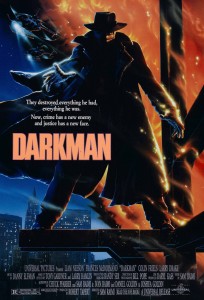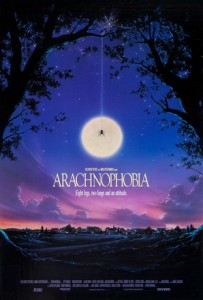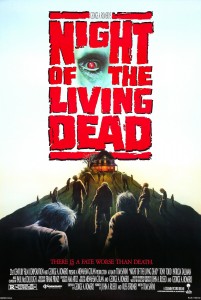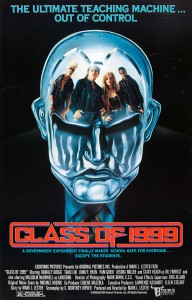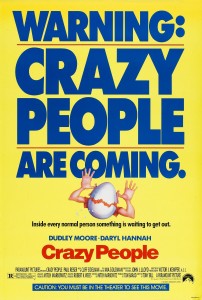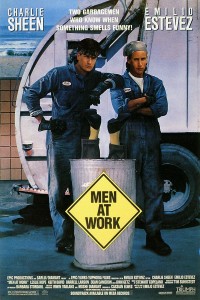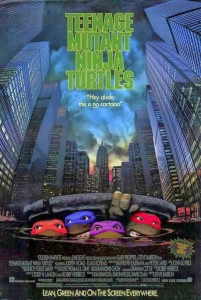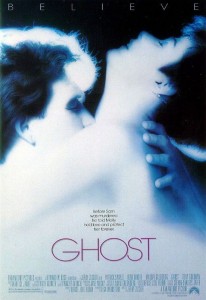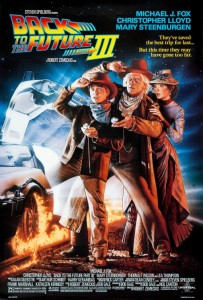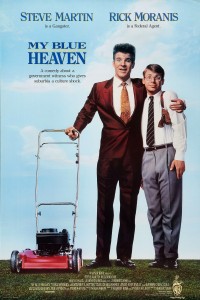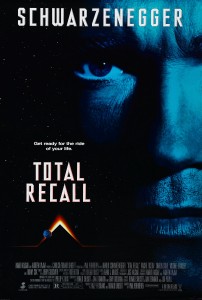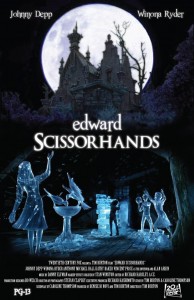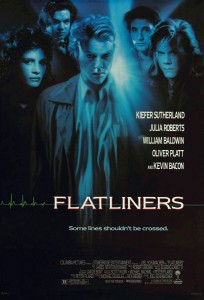1990: The Dream of the Nineties In Film
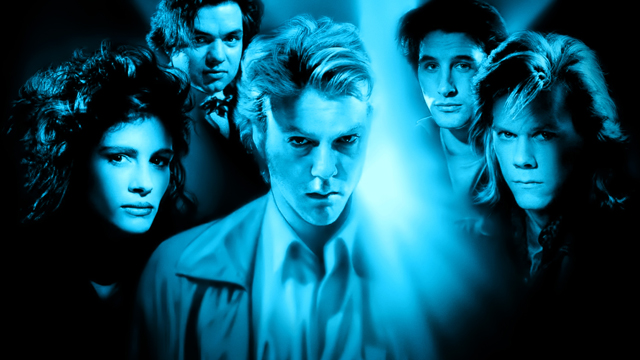
So, Where Was I In 1990?
I can’t really start talking about the films from 1990 that made me who I am without giving you a starting point of who I was and what was going on around me as well.
I wasn’t all that old, not even a teenager yet. I had a lot of experience with movies though. I’d grown up on Disney cartoons like everyone else. In fact, I’d just been to Disney World and had a chance to go to Star Tours, the Indiana Jones Stunt Show, and got to even climb into the Toon Patrol vehicle from Roger Rabbit and see how they made Honey I Shrunk the Kids. I’d seen Indiana Jones and the Raiders of the Lost Ark dozens of times, and Indiana Jones and the Temple of Doom a handful of times (I was less excited about the banquet scene and the heart-ripping and the death trap full of bugs). The Star Wars Trilogy was my religion at that point,
I was still kind of shy at that point, despite having re-united with a childhood friend who was just as extroverted as I was introverted. I wasn’t thin, but not fat, and I had only the growing understanding of the world beyond the suburb I was raised in. I got picked on pretty frequently but had found refuge in people like me in the music program.
There was news about some far away place called Russia (who 80’s action movies taught me were bad hombres), and also a place called Kuwait was starting to brew up trouble and the adults were nervous about it. Apart from that, I wasn’t really aware of much else in the world other than my friends and the RPG games we’d just discovered and the comic books we liked.
And for film, well… this was a big year for me.
The Schlock
Anyone who lived through the nineties will tell you that there were a huge amount of films that, while not very good, were for some reason compulsively watched despite being of very low quality or just bad acting and plot.
I was not immune to these films.
Like I said before, I’ve never been accused of having particularly great taste, but I like what I like (and continue to do so). So with that said, let’s scrape the bottom of my personal barrel.
Oh, and before we go on, spoilers ahead. These movies are over 20 years old, but I always have someone telling me I spoiled something for them. So, consider this your warning.
Darkman
When I watched it: Circa 1990
It taught me: Revenge; (Bad) Biology and Chemistry
Stars: ★★
One of my best friends was absolutely fascinated by Darkman. This was a movie that taught me about a whole lot of things, some good, and some bad.
It was the first time anyone had ever explained the biological concept adrenalin to me (which I remembered vaguely had something to do with Darkman’s ‘powers’ – I honestly can’t remember if this is right). The big thing though was that Darkman was a scientist who’d invented lifelike artificial skin. It was flawed though, the skin only lasted 100 minutes in direct light though, thereby restricting it’s use. While he was making a breakthrough in his lab however, he was the victm of arson. The villains who’d left him for dead in the crime left him to burn alive, but he survived, as did his notes for the synthetic skin. It left him permanently scarred, but his synthetic skin is of use to cover his ghastly face. He goes on, using the skin to imitate people who can get him close enough to get revenge on the criminals who destroyed his life. This is almost all I remember of the film apart from the villain declaring he had nine more points to make after cutting off some dude’s finger.
I remember Darkman being less of a hero and more of an unhinged guy who’d experienced near death, then got a mad on to kill people who’d done wrong by him.
Revenge turned into a theme for some of my stories and characters later as I grew into my own kind of storyteller, especially the darker ones, and Darkman helped set some of the tone for some of these writings.
I have no clue why my father felt this film was okay for me to watch when I was twelve. The acting isn’t particularly great and it’s lack of substance wasn’t followed up even with enough flash to fill in the gaps. I’m also sure that Liam Neeson really wishes this film wasn’t on his resume as much as Bruce Campbell probably likes to point it out.
Arachnophobia
When I watched it: Circa 1990
It taught me: Fear
Stars: ★★
Arachnophobia, I want to be clear, was not a great movie in my opinion. It’s not even one of my favorites. But it was good at one thing that it baked right into the title, even if it said it in Greek.
The big takeaway from the films was phobia. I don’t personally suffer from a fear of spiders – I am the chief bug killer/remover in my home (it’s the flying bugs that freak me out). But this film was good at dialing up the creep without resorting to showers of gore. I knew tons of friends though, especially my relatively few female friends at that age, who cringed at just the name of the film. But, this was one of the first films I’d seen where I was learning about creep factor.
The part that remains with me after all of these years is a dead couple (victims of poisonous spider bites) on their couch with spiders crawling into and out of their noses and ears, nesting, cocooning, and feeding off of them. Extra points for the hero taking out the queen spider with a nailgun.
Extra terror from the spider love scene as well.
Night of the Living Dead (Remake, Directed by Tom Savini)
When I watched it: Circa 2000
It taught me: Fear (this will be a recurring theme)
Stars: ★★★
In my first year of college, the same friend who’d obsessed over Darkman gave me my first ever VHS copy of the original Night of the Living Dead (1968). It scared the living shit out of me in 1997 but I could not look away. I’d seen Dawn of the Dead (1978) and Day of the Dead (1983) – most of them anyhow, I was still squeamish when I saw them at around age fourteen and would make it a point not to watch the gory bits.
While I was living at home with my parents, Night of the Living Dead, a remake of the sixties classic, came on late night on HBO. Helmed by special effects master Tom Savini, he was the right guy for the remake. I started watching around eleven o’clock and could not sleep until about four o’clock that morning. The movie was great, if schlocky, but this is often a side effect of a movie that features Tony Todd (whom I still get excited to see in any given film). It was not a perfect remake (it is a rare thing indeed to have a remake be better than the original) but it had enough shifts to make it unique and enough tone to keep it honest to the spirit of the great granddaddy of modern zombie films.
Also, the film had a great reversal of gender expectations. The final farmhouse survivor is a woman as opposed to a man, and that woman kicks ass. Further more, she goes on to survive through to the credits, whereas Ben (the only character to make it through the night in the original) lived only long enough into the morning to be shot by a human ‘mistaking’ him for a zombie in broad daylight.
The Class of 1999
When I Watched It: Circa 1998
It Taught Me: (Bad) Future Forecasting/Cyberpunk
Stars:★★★
The Class of 1999 came on HBO on a late night. I remembered hearing about it from a my Darkman evangelist friend who’d said that it was really campy but worth a watch (he recently informed me that this memory is false, but I swear it was him). The concept was that a military technology contractor decides to offload their life-like android battle droids to a failing public school in order to keep the juvenile delinquents in it in line.Things go badly when the teachers start killing problem students and the student body gets suspicious.
It’s… a mostly awful movie. But I remember watching it and thinking ‘did we actually think we’d get this far, technologically speaking by now (the answer was yes, we’ll get to more of that in 1991)?’ It also was a film that, while not executed particularly well, scratched a developing itch that turned into a preferred focus: cyberpunk. Soulless corporate entities, advanced technology, combat zones (referred to as ‘free fire zones’), and anti-establishment themes, they’re all here. I list this film anytime cyberpunk cinema comes up, for good or ill (we’ll talk about cyberpunk more in 1995).
Then there’s a pretty obvious (and dramatically hyperbolic) display of the fears of the era: rebellious youth, street violence, gang warfare, drug use, crime, unchecked technology, corporate influence. Humans are really bad at making predictions, and sci-fi films depicting the future are often a good example of this. I’m reminded of this every time I watch Blade Runner (1982) or Escape From New York (1981). This film is the classic example of the future taken to the nth degree. The film just took all of those fears and turned all of them up to eleven (or as high as they could given budget).
This film did get a couple of known names though, particularly Pam Grier as one of the android teachers; and Malcolm McDowell as the Principal of Kennedy High School. Plus, Head Like A Hole by Nine Inch Nails is a part of the soundtrack.
Somewhere In the Middle
Somewhere between the schlock and the pinnacle were the films that were too polished and had too many big names to be schlock, but weren’t quite good enough to be the cream of the crop. Here, you’ll find the sleeper hits, the almost-made-its, and the rabble of films that had a small nugget of glory to find amid the dross.
Crazy People
When I watched it: Circa 1995
What it inspired in me: Irreverence; Brutal Honesty
Stars: ★★★
Late in the nineties, I would begin my career in graphic design. That career started in advertising. It’s really the most basic thing designers get employed for. Not creativity, not honesty or passion. They pay designers to pump out ads to make product manufacturers rich. Our ‘art’ doesn’t really enter the picture.
Dudley Moore’s character, a highly paid ad man, has realized this in spades in this film, and he’s burning out. In a last fit of desperation and sudden enlightenment, he starts presenting wildly inappropriate but intensely honest ads to his bosses. The powers that be for his firm promptly push him into a mental hospital until such a time that he can work out his issues and return to work. What he finds though is incredible inspiration. He embraces the insanity of his fellow inmates and makes even bigger, better, more inappropriate, and (frankly) awesome ads containing honesty and brutal candor along with his fellow patients. And it takes off. I still remember and spout off some of the slogans on occasion:
- “Metamucil: take it, or you’ll get old, get cancer, and die.”
- “Volvos: They’re boxy, but they’re good.”
- “Jaguar: sleek and smart. For men who would like handjobs from beautiful women they hardly know!”
- “Sony: Because caucasians are too damn tall.”
- “Forget France. Come to Greece – we’re nicer”
Now, it took some time for this to really sink in, and until I took that first ad job in the late nineties, I don’t think I could have fully understood everything Crazy People had to offer. But, sometimes to get the biggest laugh, you have to find a place inside of you that simply doesn’t care about politeness. You have to present the truth (or at least a highly recognizable perceived truth) in such an obvious way that you cannot help but laugh. This movie taught me that in a big way.
Men At Work
When I watched it: Circa 1990
It taught me: Gallows Humor; Irreverence
Stars: ★★★
Men at Work is one of those movies that you go back and look at it and it’s just… ridiculous. I remember the plot being about two garbage men (Emilio Estevez and Charlie Sheen) witnessing shady dealings between a few people one of them was stalking, then finding the body of one of the conspirators on their route in a can the next day. They’re afraid of being framed for his murder and stash the body, using it as leverage to clear their names and put some bad dudes behind bars.
Movies hadn’t really progressed beyond the eighties yet in a lot of ways.
But it wasn’t the plot that got me. It was the humor. It was pretty irreverent even for a PG-13 film. But it was also dark. I’d learn over time more about ‘gallows humor’ but the film contained what might have been my earliest memorable example, the moment where Keith David (portraying a borderline crazy Vietnam Veteran) sees the body and says “Aww, lookie here. Looks like somebody threw away a perfectly white boy.” It floored me. It was distasteful but hilarious. I could not stop laughing.
Yes, I know that this line was a paraphrase of a line in Better Off Dead (1985), but I saw Men at Work first.
Teenage Mutant Ninja Turtles
When I watched it: 1990
It taught me: Adaptation
Stars: ★★★★
I saw this in the first couple weeks it was in theater, then watched the shit out of it on VHS right up through college until the tape warped.
To say I was a fan of Teenage Mutant Ninja Turtles as a child would be an understatement. I followed it and revered it in the same way I did Indiana Jones, Star Wars, and Ghostbusters. It colors a lot of my experience but only until later would it really settle in why I liked it so much. Some friends back then were actually disappointed. But what about Krang? And the Technodrome? Aren’t the Foot robots? And where were the Mousers and Baxter Stockman?
I knew though.
When I love a thing, I dive deep into it. I learn everything I can, including origins. And those original comics… they were dark as hell. Splinter raised four, straight-up murder turtles. Those katanas and sais weren’t for defense, they were for killing men, particularly of the clan of ninjas that killed Master Splinter’s sensei. They had the honor of bushido, but their purpose was grim and violent. For a story containing something as ridiculous as mutant animals with ninja training, the original story was compelling, and gritty, and a lot better thought out than the cartoons. And it was this story they went with for the film.
I kind of enjoyed being in on what had happened. What had been adapted wasn’t the terrible cartoon (I loved it back then but it does not hold up) or Archie comics. It adapted the original comic books. Of course, they had to make sure that they could tie it in with the Teenage Mutant Ninja Turtles that was more family friendly to get that sweet G and PG cash that mom and dad would shell out (pun not intended) in order to keep their kids distracted for a couple hours. And for some reason, it penetrated my brain early that sometimes when you made a movie adaptation, things might have to change. Might. I was still mostly a purist when it came to my favorite properties. Still am. But, this was the first time I could see a compromise in adaptation absolutely working.
Also, this is one of Sam Rockwell’s first movies (he plays the lead street kid who reveals the Foot’s hideout).
Ghost
When I watched it: Circa 1991
It taught me: Genre Blending; The Afterlife
Stars: ★★★★
If you’ve read anything I’ve written or read anything on this blog at all, really, you know that ghosts are high up there on my lists of favorite subjects. But this wasn’t the kind of ghost movie I was expecting as a kid.
Ghost is about a successful banker, Sam, with a bright future and a loving wife, Molly. Things go horribly wrong when Sam is killed in a robbery gone wrong before Molly’s eyes. But it doesn’t end there for Sam. He is stuck to wander New York City as a ghost. In the process of learning the rules of his new existence, he discovers that his best friend, Carl, arranged his death-by-robbery to cover up an embezzlement scheme Sam was close to learning about. Plus, Carl is putting the moves on grieving Molly. With the help of a formerly fake, but now totally legitimate, spirit medium, Oda Mae, Sam protects Molly from the events that have unfolded from his death.
This is a movie about both love and revenge from beyond the grave, a favorite trope of mine (We’ll get my favorite example in 1994). It fascinated me though because to me, this was kind of a new idea for me – that you could do both at the same time with depth and relative complexity (though I couldn’t have verbalized it as such at the time). Of course, this isn’t uncommon. It’s a tale as old as time: revenge for lost or stolen love. But this was where I think it clicked for the first time.
The other big thing for me was that this film had a depiction of the afterlife that I really latched onto. That there were special people who could really talk to the dead. There were both demonic and godly forces that had visible levels influence. Possession. Ghosts weren’t some kind of terrifying monster, but rather human beings who found themselves in supernatural circumstances. And thinking about it from the other side was something this film solidified for me: a ghost story from the perspective of the ghost.
Additionally, I love Vincenr Schiavelli’s homeless shade. He summed up the wretched existence of a ghost: damned for eternity to simply watch all of the things he can no longer have.
Personal Blockbusters
Now here’s the main event. These are films that either made me what I am today or moved something in me to a significant degree. You’ll hear me quote these films regularly, see their DNA in my writing, or catch me rewatching on a regular basis. They don’t have to be your favorites, but they are some of mine.
Back To the Future, Part III
When I watched it: 1990
It inspired me through: Continuity; Scope
Stars: ★★★★★
I’m not a particularly big fan of time travel these days, but I loved all of the Back to the Future movies from start to finish (I won second place in a company-wide BTtF trivia event against stiff competition).
The series has its problems, but its heart was in the right place. Time travel is something that is so hard to do well. And while I always find something to pick apart in them, the BTtF trilogy was one of the better ones.
One of the things I love was the sense of continuity maintained through all of the films and the way history (and the future) kept repeating itself. I loved how the sets for Hill Valley evolved from era to era, from 1888 to 1955, to two separate 1985s, to 2015. Back To the Future, Part 3 was simply the extension of it, a resolution to the films I’d loved in my very early childhood. They managed to tell a story which for me (at the time) didn’t have anything so glaring plot-wise that it knocked me out of the flow. A good story should always do that.
And then there was the scope of it all. It’s a story that spanned over a century but that occurred over the course of a couple of weeks for Marty. It showed me how big you could let a story be if you wanted to.
My Blue Heaven
When I watched it: 1990
It taught me: Timing; Comedy; The Open Ending
Stars: ★★★★★
I sometimes have trouble grasping why My Blue Heaven wasn’t a bigger success. My parents are of the opinion that it didn’t make it big due to the film’s less than sterling portrayal of Italians (though I feel it wasn’t targeted at Italians in general so much as our stereotype of the Italian Mafia). But regardless of how it was received by critics, it is one of my all-time favorite comedies.
It covers the story of a New York mafiosi turned snitch, Vinnie. He moves out to the suburbs of San Diego and goes into witness protection where Barney, his handler, tries in vain to assimilate him into his new life. When Vinnie discovers the witness protection agency has placed a few other fellow mafiosi in the ‘burbs with him, and that the support checks from the Feds will end after his trial, he decides to start a new crime wave with his regained friends. Hilarity ensues as he intertwines himself into the lives of his FBI handler, the handler’s friends, former mobsters, and the local community.
The movie has some of the best comedy deliveries I can think of, and the jokes continue to make me laugh to this day. My family quotes it regularly. It delivers at the exact most timely moments that it can, from Vinnie showing two kids how to pick someone’s pocket while standing for the National Anthem (“You always gotta watch your wallets, kids”), to his deadpan deliveries to Hannah, Barney’s love interest (“The shoes… the shoes are tragic”), the jokes have the best timing you can ask for. It had a great cast as well,with Steve Martin as Vinnie, Rick Moranis as Barney, and Joan Cusack as Hannah.
But, the real sticking point for me is the ending. Vinnie, at every turn, engages in criminal activity. He never really seems to regret anything he does and can explain his way out of anything. Close to the end of the film he’s accused of stealing from kids as well as the larger community. It starts when Vinnie’s crew knocks over a truck and ends up getting nothing but a bunch of empty water dispenser barrels which Vinnie then repurposes as money collection jugs ostensibly for the local little league team. The local kids put everything they can into the fund raiser, as do their parents and the rest of the town, getting Vinnie rather a lot of untraceable cash. However, this money eventually does end up funding the Fryburg Turtles, netting them all new equipment, a brand new professional stadium, and snazzy uniforms. But, the question we always debate between my mom, dad, and myself is did he spend the money that way when he got caught to save his own skin… or did he mean to do it all along? Because, for all of his criminality, he actually bonds with Hannah’s kids who are on the little league team. When he’s teaching the kids how pickpocketing works, he’s teaching them how not to be victimized. He looks out for the kids in ahis own weird way. So is he a scuzzy thief in the end, or did he actually turn a new leaf and finally give back?
We still can’t find the answer. And I love it.
Total Recall
When I watched it: Circa 1993
What it inspired in me: A Fascination With Mars, The The Open Ending
Stars: ★★★★★
As a kid, I grew up on the stories my mom would tell me about the moon landing. I watched the shuttle program go through it’s highs and catastrophic lows. I looked at the pictures that came back from Viking and Voyager. Everything I’d seen told me one thing: someday, I was going to live and work in space.
Obviously, this isn’t going to happen. We seem intent on strangling NASA in its sleep, and until we find a way to make a buck in space by actually sending people up in orbit, there’s gonna be no calls for the kind of advances we’d need to live and work in space.
Lucky for me, 1990 brought me Total Recall.
Now, scientifically accurate it ain’t. Physics takes a powder in this film. The realities of gravity and what loss of it does to bone density is thrown out the window. But, you don’t need this. You can explain away a lot of the science with the old Asimov arguments (sufficient technology being indistinguishable from magic) and a good dollop of Phillip K. Dick’s sci-fi sensibilities. Because it’s not really about the tech so much as it’s about living on the frontiers of both space and reality.
Total Recall covers the life of Douglas Quaid, a nobody on Earth who dreams of going to Mars. He knows he’ll never afford to go to the bustling colony there, but he thinks he has the solution. Against the wishes of his wife, he goes to a business called Rekall, a company that can create realistic false memories to implant in your brain. They can take you to the most exotic locations, experience the most thrilling adventures, and to ultimately have the best experience money can fabricate. It goes sideways however when he signs up for the super spy trip: an implanted memory program in which the person travels somewhere as a spy, has James Bond styled adventures, and returns back to normal life. Trouble is… he really is a spy and his work-a-day life is an implanted memory! Or is it? The film concludes exactly the way that the trip is pitched (Quaid goes to Mars, discovers alien technology being suppressed by the local corporate concerns, kills a whole lot of people, and transforms Mars’ barren climate into one capable of sustaining human life), but it’s left vague as to whether or not Quaid actually travels to Mars or if it’s all in its head.
Personally I think it really happened – in the process of the unfolding events, Quaid kills his wife, takes down a corporation, and changes the status quo on Mars too drastically. Rekall makes its money based on their clientele never catching on that Rekall implanted the memories – more real than the real thing is their ethos after all.
But watching this movie in my teens, I just loved their depiction of life on Mars. I wanted to check into the Hilton there and feel the alien rock under my hands. I wanted to see the barren yet awe-inspiring vistas of the surface of mars. I wanted to have the technologies seen (even if Johnny Cab was kind of disturbing). It set the tone for what I thought the future could be like – even though now I know I’m never gonna get it.
Edward Scissorhands
When I watched it: 1991
What it taught me: Inversion of Expectations; Stories Don’t Always Have Happy Endings
Stars: ★★★★★
I remember being bummed out when mom brought Edward Scissorhands back home from the video store. I don’t know what I would have preferred in it’s place, but I was disappointed. Likely this was because my sister seemed to really want to see it on account of Johnny Depp.
I was an idiot.
This has been a movie that has stuck with me throughout the years. With every viewing I pick out something else that I hadn’t noticed prior. Especially in retrospect I can look back and see so much of the realities of human nature that the film plays like a fiddle. It’s Frankenstein and the early Sixties thrown in a blender with knives, then turned on at the highest setting.
The story covers the manufactured creature known only as Edward. Made by The Inventor in a castle looking over a Leave It To Beaver styled suburb. He is built piecemeal over time and trained by his creator to be a caring soul. But, before he could be completed, The Inventor dies, leaving Edward with only a series of shear blades configured into a facsimile of hands. Alone and scared of the town below, Edward remains in the castle until he’s chanced upon by a pathologically nosey but caring Avon lady who takes him home with her. Edward meets her family and does his best to assimilate into the outwardly prosaic suburb. His ghastly appearance and threatening looking hands keep the neighbors at bay at first, but many come to like him. Soon however, human nature asserts itself. Just as Edward starts to open up and try to please the townfolk, people make their own plays at taking advantage of his naiveté, unusual skills, and his newfound fame. It ends just like you’d expect it to after a series of mishaps, bad calls, and ultimately violence. Edward is forced back into seclusion where he lives on, apart from the town.
It’s… really the only way the story could end. Humans make shitty neighbors for anything else that isn’t like they are. Even when humans face other groups of humans that are only a little different, sometimes it isn’t good enough. The fear of ‘the other’ is as old as the species, and someone like Edward was doomed from the start. It’s a melancholy thing that I drew from the film. Humans are the real monsters, and, sometimes, things end less than well for all parties concerned. The town lost an amazing talent and exceptionally sensitive member. Edward loses the only family he’s ever known. People get hurt and die. The principals all go back to their corners. They carry love and experience and good memories, but also have those facets covered by a pall of regret, misfortune and pain.
Just like real life.
This film makes me cry every time I watch it. I never felt like I fit in myself as a kid. I was a nerd who read books when the other kids were playing football. I had thick, Coke bottle plastic glasses. I was scared of everything, and as a result I was shy. I’d have killed to have had a castle to myself away from everyone else. So, I could relate to being thrown into things I didn’t ask for when I filmed this. I had been thrown into many things as a kid that I didn’t really ask for. Some I liked, others I didn’t, but I saw a lot of myself in Edward. Thankfully, I never had his unique problems or faced an utter witch hunt against me, but there’s something utterly relatable that strikes an sympathetic chord, even today.
Flatliners
When I watched it: Circa 1997
What it inspired in me: A fascination with the afterlife
Stars: ★★★★★
I got to this film late, as I did with most horror movies (apart from my parents’ objections, I was also scared of everything as a kid as noted above). It was the college years when I finally scored a used VHS of Flatliners from the Blockbuster Video on South Street in Philadelphia.
The film centers on the ambition of a young medical student, Nelson. Wanting to leave his mark on medical history, he intends to kill himself in a safe setting using a chemical cocktail, then let himself be revived after being clinically brain dead for a few minutes. He intends to delve into death and bring back its secrets. He assembles a handful of similarly curious students to aid him in this endeavor, some more willing than others. His first ‘flatline’ is a success, but it turns out that death does not like to be cheated. He initially omits some of the negative experiences of the process of making contact with the afterlife -visions of his long dead dog, a shadowy and malicious child – and then his own personal demons physically begin manifesting. Soon, half of his fellow conspirators have also made the journey – longer ones – and they too are finding their pasts returning to haunt them, Nelson violently so, and he comes to the decision that the demons of their pasts must be repaid. Some will require steeper payments others.
This itches me right where the need for ghost stories generate scratches. The cinematography and presentation is amazing (this was before Joel Schumacher lost his goddamned mind on the set of Batman Forever and Batman and Robin) and I love the concept of young, foolhardy necronauts going the the real final frontier. The acting is good for a supernatural thriller and the cast was nothing short of great. Kiefer Sutherland, Kevin Bacon, Julia Roberts, Oliver Platt and William Baldwin fill out all of the students’ roles with an onscreen presence that holds together and sells the story.
The portrayal of the afterlife sticks with me after all these years and has ultimately colored my stories and to some degree my personal beliefs, strangely enough. I’ve imagined conceptually that the afterlife could possibly not be a heaven or hell visited upon us by benevolent creatoires of vile betrayers. Perhaps if there is an afterlife, it’s having to come to terms with the consequences of the things you did in life. Your torture or comfort will come from those things by your own judgement in someplace else with nothing to do but reflect on what you did with your time on earth.
